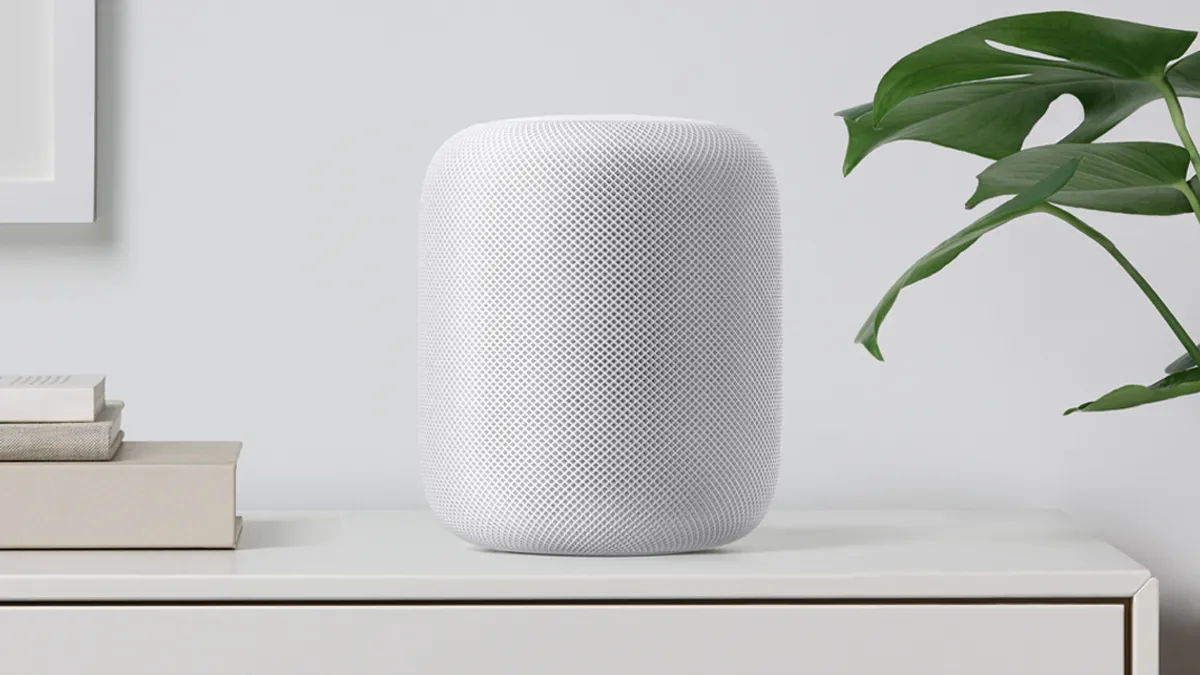Dive Brief:
- Apple lowered the sales forecasts for its HomePod smart speaker and cut orders from one of its manufacturers, Bloomberg reported citing a source familiar with the matter. HomePod inventory is simply not moving, with some Apple stores selling fewer than 10 devices per day, employees said.
- During its first 10 weeks on the market, the HomePod earned just 10% of the smart speaker market, compared to Amazon's Echo (73%) and Google Home (14%), per Slice Intelligence data cited by Bloomberg. Early signs suggested that HomePod could be a success, including strong pre-orders. The device took about one-third of the smart speaker market by the end of January, shortly after launch. Three weeks later, sales slipped to about 4% of the market.
- Criticisms include the product's limited functionality compared to the competition — it can't order pizzas like Amazon's Alexa, for example, and mostly functions on Apple-approved apps — and also its high price point. Apple promoted the device based on top-notch sound quality, which has received praise, but mostly saw the HomePod as a high-quality speaker rather than a full-fledged voice-controlled device, per Bloomberg.
Dive Insight:
When it debuted the HomePod in January, Apple was already late to an increasingly competitive smart speaker space, having missed the key holiday launch window last year due to product delays. Amazon's Alexa-powered Echo products have helped lead to a surge of consumer and enterprise interest in connected smart speakers, and Google has been quickly catching up with its Made by Google hardware.
The Bloomberg report signals how Apple, the brand that helped popularize widespread adoption of the smartphone, has started to flag when it comes to mobile innovation. Frustrations with the HomePod's insularity — it can only stream music from Apple Music, for example, and not other services like Spotify — underscore how Apple's notorious walled garden approach to its products and software is becoming a hindrance when going up against more open-source platforms offered by Amazon and Google.
These factors, combined with the HomePod's comparatively high price point, could put Apple seriously behind in a technology area many marketers are excited about: voice search. Currently, two in five consumers own devices with voice assistants but more than 60% never use them to browse or make purchases, a study by Episerver found. However, that's set to change in the coming years, as Juniper Research forecasts that marketers' ad spending on voice-powered digital assistants will reach nearly $19 billion by 2022.














